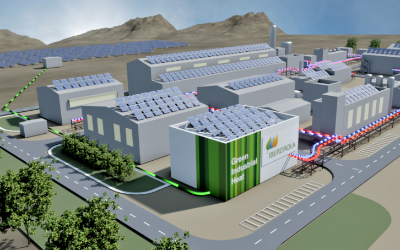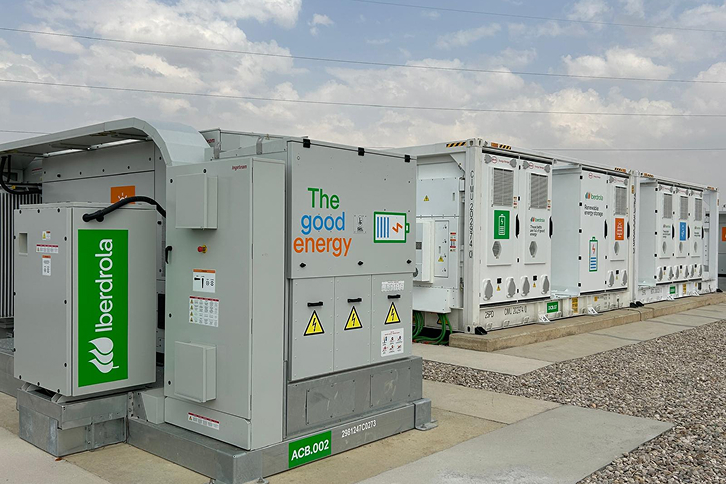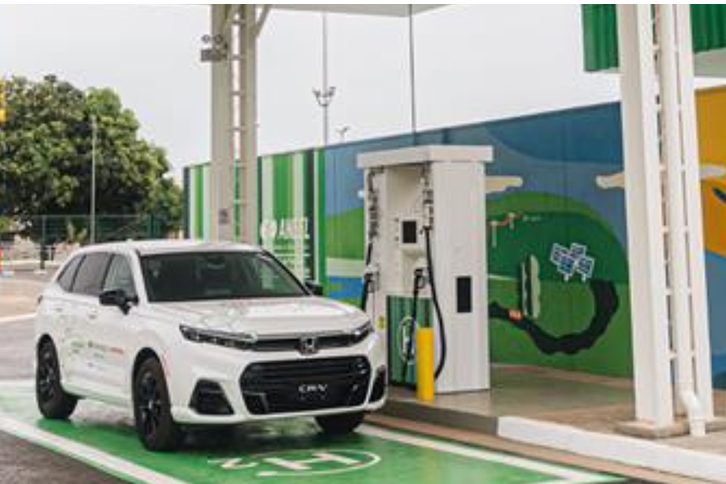Electrification
Join the revolution of our century
At Iberdrola, we are moving forward to accelerate the electrification of the planet, towards a system capable of meeting the growing demand for energy in a sustainable, efficient and emissions-neutral way.

The electricity sector is best placed to meet the growing demand for energy while fulfilling commitments to reduce greenhouse gas emissions, thanks to its ability to integrate renewable sources. The electrification of the economy is the challenge of the 21st century, particularly in sectors traditionally dependent on fossil fuels such as transport (through electric vehicles), buildings (through heat pumps) and industry (through tailor-made solutions). Discover the main advantages of electrification.
What is electrification?
Energy is an essential part of our daily lives and enables us to carry out simple tasks such as heating our homes, starting the car or working on the computer in the office. However, our way of living has long been based on energy consumption that contributes to the emission of CO2 – one of the most damaging greenhouse gases (GHG) in the environment. Shifting to a more sustainable, resilient and secure model requires us to change the way we generate and consume electricity.
In this context, electrification plays a key role. This concept refers to the process of using electricity generated from renewable energy sources – such as wind, solar, hydro or geothermal – to replace fossil fuels – such as oil or natural gas – to perform tasks or power systems.
This change of model also requires redesigning network systems created decades ago to adapt them to cities that have changed radically and need flexibility and resilience.
This will be achieved by driving the expansion, replacement and upgrading of electricity grids to ensure efficient and reliable connections between clean-energy hubs and demand centres. In addition, digitalisation and the implementation of artificial intelligence will improve service quality and grid resilience.

"My message is very clear: electrification is unstoppable, and electrification means energy security. With global electricity demand set to double by 2050, investment in networks, both transmission and distribution, generation and storage is more urgent than ever."
Ignacio Galán
Executive Chairman of Iberdrola
Electrification in different sectors
Electricity from clean energy is set to replace the direct use of fossil fuels in those sectors that are the main drivers of GHG emissions, including the so-called hard-to-abate sectors: cities and urban transport, heavy transport and industry.

The key investment areas of our Strategic Plan 2025-2028
Challenges and trends for understanding the electrification process
What are the advantages of electrification?
Electrification has a number of key benefits for our planet and our society. Here are some of its main advantages:
Iberdrola, driving the electrification of the economy
09 December 2025
The electrification of the economy represents a strategic pillar for driving a sustainable and resilient economic transformation. In the productive sphere, this process involves the gradual replacement of fossil fuels with the predominant use of electricity generated from renewable sources.
This paradigm shift requires coordinated and determined action. Iberdrola actively promotes this model by fostering key investments in electrical infrastructure and accelerating the adoption of clean and renewable technologies. We support regulatory frameworks and policies that encourage these solutions across all sectors, recognising that electrification is an essential tool for economic progress and climate action.

























